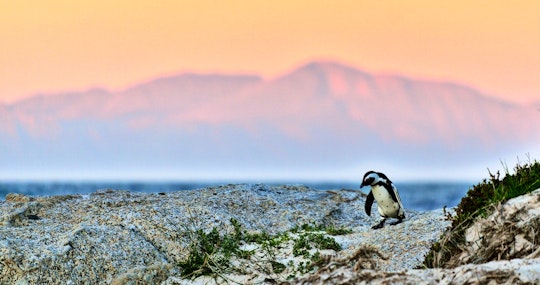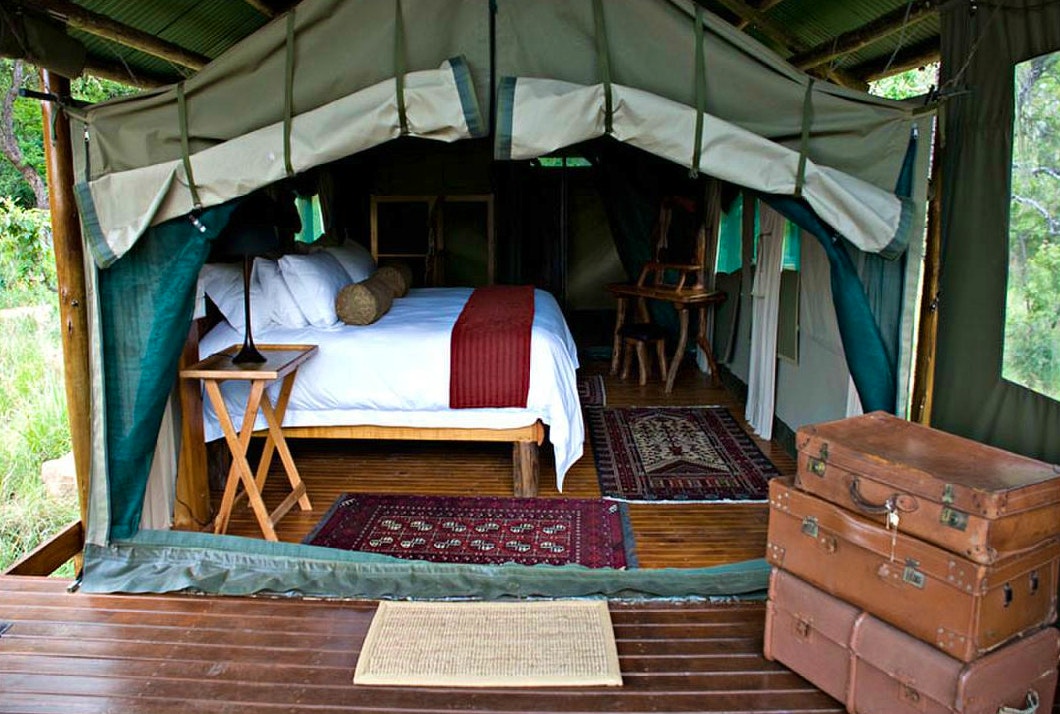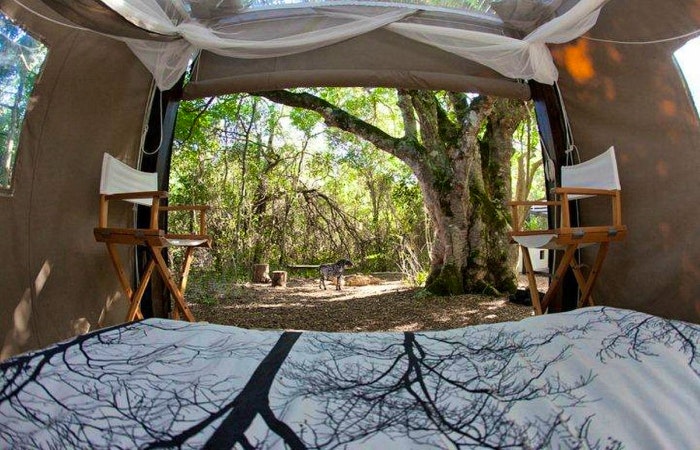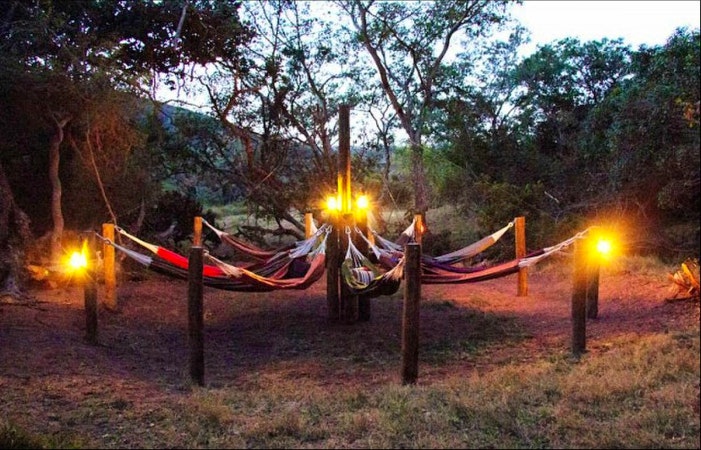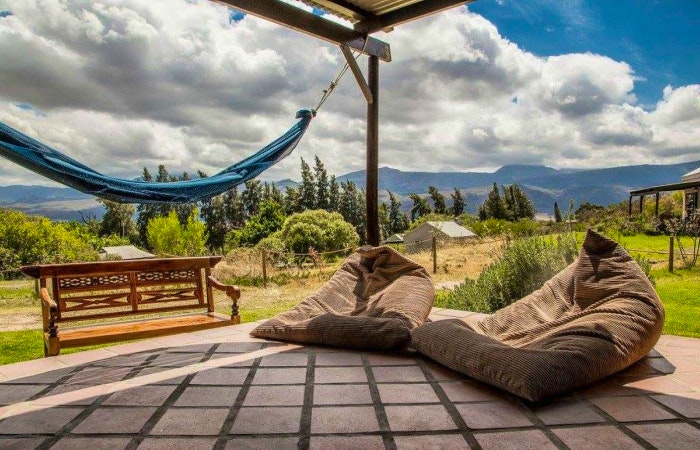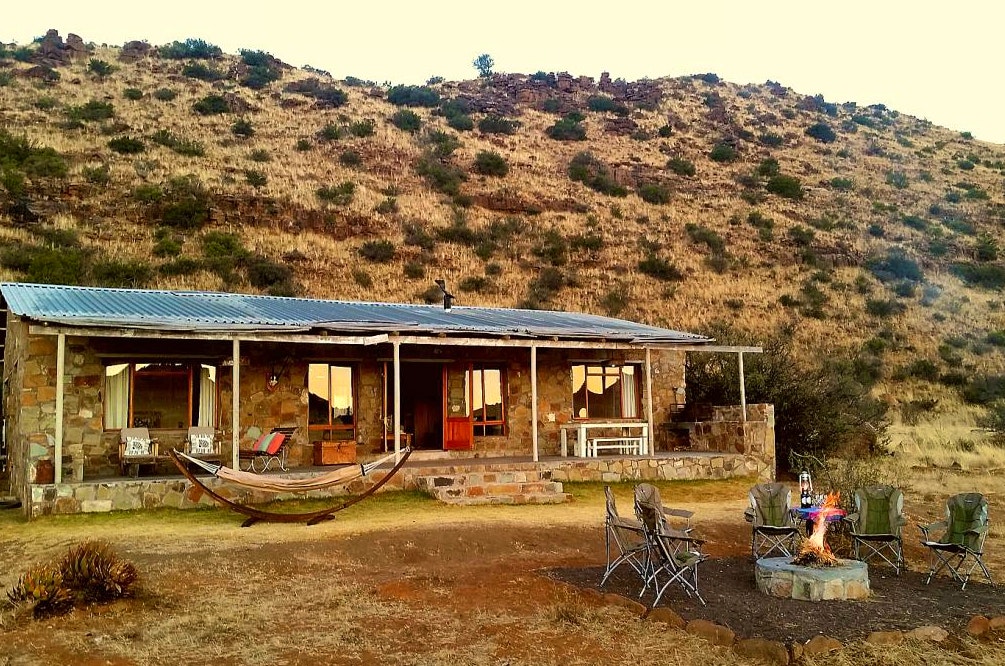
Travelling in our beautiful country makes it easy to forget that this awesome experience comes with a responsibility. Sustainable travel is all about environmentally friendly practices, the protection of natural and cultural heritage, and benefiting the communities hosting you. Though this might seem daunting, sustainability can be practiced in small and simple ways and even enrich your travel experience. So, be mindful during your travels and follow TravelGround’s tips and tricks to guide you on the green path!
Whether your social networking poison be Twitter, Facebook, Instagram or all of the above, take the time to think about the impact of your post before you hit send.
Keep secrets a secret. Yes, you might look great on that selfie you took on that hidden beach, but maybe don’t tag it’s location. What made the day special was the pristine sand and surf ─ why invite hoards of beachgoers to your new favourite spot and risk it ending up littered and cramped? If you want to share this gem, do it by word of mouth and invite only like-minded people who’ll look after and respect it as much as you do.
At the same time do give shout outs to those doing it right. If a small, local business is doing a fantastic job, take the time to write them a review on Google or Tripadvisor. If they’re the epitome of Instagram-worthy, following and posting about them and tagging the appropriate people benefits that business, the community it serves and your Instagram feed. So, share and share alike!
Say, ‘That’s the last straw!’ Picking up the straw your waiter has offered and dipping it in your drink has become as much an involuntary movement as breathing, but just think about it. Is there any reason why you have to suck your refreshment through a tube? No, there isn’t! Simply decline the straw and don’t form part of the 12 million metric tonnes of plastic that end up in our oceans every year.
We commend the mindful franchise, Ocean Basket, and Cape Town hotspots, Bacon on Bree and Truth Coffee, for proudly doing away with straws and plastic bags at their joints. But, if you end up eating elsewhere, just say, ‘no thank you,’ and enjoy your drink the greener way.
Reduce. Reuse. Recycle. While you’re getting some R&R, why not keep these other three Rs in mind too! This doesn’t mean that you have to lug three different bags along for sorting litter. There are simpler methods:
- Opt for products that use less plastic or biodegradable material in the packaging.
- You’re on holiday ─ don’t rush or eat on the go. Sit down and have a meal at a restaurant to minimise your use of takeaway cups and polystyrene holders.
- If the option is available, place litter in the appropriate bins; if not, enquire about this in a friendly manner. Maybe they’ll get to it.
- Keep one bag for glass, paper and plastic items in the car to be recycled later or at home;
- If you’ve bought a bottle of water, keep filling it with fresh water instead of throwing the bottle away and buying a new one every time.

Let’s face it, most of us can’t change political tides, invest millions in something we believe in or get thousands to change their unsustainable habits overnight, but we can use our buying power and spend the little we have supporting things that are worthwhile.
Always support local business when travelling. Forget that franchises exist and pay a little bit more to help a local farmer, grocer, artisan or restauranter fulfill an authentic dream. You might just stumble across something truly unique.
Even better, support local businesses that use sustainable methods. People who put in the effort to employ these methods are always very proud of them ─ you need only ask to hear how they do business, check their ‘About Us’ page beforehand or keep an eye out for clues on their product labels.
Who wants the lah-di-dah tourist experience anyway? Do a bit of research, talk to locals as much as possible, seek out storytellers and visit the village museum to ensure that you support the area’s heritage and culture and to really step into a new world when you travel.
Support local causes that aim to uplift the community. This might take some research, but it’ll definitely be worth it. We’re thinking about initiatives like the GiantFlag Project in the Eastern Cape’s Valley of Desolation where one can buy a succulent for only R100. The succulent will form part of a massive flag, seen from space, that’ll help create jobs in this impoverished community.
The best part of this approach is connecting with a new community which will broaden both their horizons and yours!
We know South Africa isn’t known for its safe and reliable public transport system. Nevertheless, try to be mindful of your carbon emissions. Whenever it’s possible and safe, walk. As you enter a new town, observe what the locals do. If they stroll, then you might too.
If there’s a local transport system that works, such as the MyCiTi buses in Cape Town or the Gautrain in Gauteng, use it.
If you have to fly, support an airline like SAA or Mango who actively try to offset their carbon emissions or calculate your carbon footprint on Food and Trees for Africa and donate accordingly to help plant fruit and indigenous trees.
The rule of thumb is: admire them, but leave them be. Please don’t feed the baboons or pet the penguins. Just observe, take your photo (from a distance) and donate to those trying to preserve these animals’ natural habitat.
Be wary of supporting so-called animal experiences which only end up harming the animals and affecting their natural behaviour for financial benefit and the thrill factor.
There are lovely initiatives that allow you to ‘adopt’ or support an animal, like with our many donkey sanctuaries and penguin programs which will leave you with that warm and fuzzy feeling without the negative effects on the critters themselves.

Try to leave it a better place than when you arrived. Take a plastic bag along and pick up litter. Just think what South Africa’s gorgeous beaches would look like if every family visiting the beach on a sweltering day filled just one plastic bag with washed up litter. This also teaches your children the valuable lesson of taking care of their environment.
Even better, as you travel, fill the copious amounts of plastic bottles one generates with bits and pieces of non-biodegradable plastic to form an ecobrick, a recycling craze that’s taking the Cape by storm.
Also, don’t stray off the path. We’re all for adventure, but nature reserves and the like lay out paths for a reason and straying off the track could affect the undergrowth. Picking flowers or leaves along the way is also a no-g(r)o(w).
Remember, ‘Take only photographs and leave only footprints,’ is the way to go.
Don’t overdo it. Being on holiday does not entitle anyone to bathe like a queen – including the queen – nor do you absolutely need a fresh towel or clean sheets every single day. If you’re staying in a hotel where sheets and towels are freshened daily, simply leave the do not disturb sign on the door to prevent unnecessary washing.
There are so many apps and technological hacks out there that could help you travel and live more sustainably. Here are just a few simple ones that might help while you’re on holiday:
Snapscan is fast becoming a more popular, cheaper means of making a quick payment, especially among small local businesses. It’s also safer than carrying cash and, of course, the environment will benefit from less printed slips.
The SASSI (South African Sustainable Seafood) app allows you to quickly check the sustainability of your seafood choice on your phone.
Don’t just accept printed maps and brochures if you can help it ─ you know you’ll only throw them out later. Take a picture on your phone if you really need the information or use Google Maps to get around.
Download the Tuffy Recycling Center Locator app to see where your nearest recycling drop-off is when you’re on the road.
Keep documentation of flights and book-ins on your phone or tablet instead of printing everything out.
There are loads of beautiful stays in South Africa that make a real green effort and it’s always rewarding staying at these places and learning about the way they practice sustainability.
Here are a few green options on TravelGround.com.

Black Leopard Camp
Lydenburg, Mpumalanga
This camp provides its own electricity, water and waste management. Guests are invited on educational game drives and walks in the bush to learn about the ecosystem and the leopard research programme conducted on the premises.

Platbos Forest
Overberg, Western Cape
So passionate are Francois and Melissa Krige about the endangered afromontane forest at Platbos near Gansbaai that they built eco-friendly, off-the-grid accommodation and forest walks so guests can experience it too. They work tirelessly to restore and conserve this magical forest and invite guests to aid in the endeavour.

Mashovhela Bush Lodge
Louis Trichardt, Limpopo
Experience Venda culture from a Venda guide at this award-winning lodge. It’s Fair Trade accredited and has won the Gold Leaf Award for its eco-friendly principles and sustainable energy usage ─ at an affordable rate no less!

Cederkloof Botanical Retreat
Cederberg, Western Cape
This estate near Citrusdal isn’t just a (re)treat, it’s also a passion project. The land, which was destroyed by conventional wheat farming, is being nursed back to health by the sustainable cultivation of a wonderplant that is indigenous to the region: rooibos!

Karoo Ridge Eco-Lodge
Middelburg, Eastern Cape
This lodge has been built from recycled materials and offers farming activities and a tour of the conservancy.

Remember, travelling is a privilege, not a right, and, as such, comes with some responsibility. Let’s remember that the communities we visit and the environment they rely on are intertwined and that each small, sustainable practice could help uplift and preserve our beautiful country and its people. So why not do your bit?
Feature image: BigStock
All GIF images: Giphy
All establishment photos: TravelGround.com

